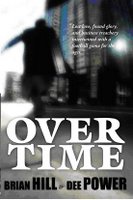Since we have to endure one more game in the exceedingly dull NFL preseason, I thought I’d switch from football to one of my other favorite subjects, and make this a DOG BLOG. (Just a quick editorial note: I think it’s time professional football dispense with the farce of charging fans full price for tickets to preseason games that are essentially practice sessions held at night.)
Anyway on to the story:
Three years ago this week, my dog saved my life. Her name is Rose. I won’t tell you what breed she is, so you can imagine your own beloved dog in her place as I narrate this story. It was early one Sunday morning. My wife and I were working in our back yard installing a new irrigation system. Rose played her usual key supervisory role of lying under a shade tree and watching us as we worked.
My wife went inside to get us iced tea. I continued working, on my hands and knees connecting the irrigation tubing. What I didn’t know is that a few feet from my head, coiled under a grape vine, was a rattlesnake that had somehow crawled through a small crack in the wall. There was never any rattle, never any warning.
I was about to get struck by a deadly snake, possibly in the eye or the throat.
But Rose sprang forward and got between me and the rattlesnake just as it sprang out from under the vine. Rose took the bite for me, and it struck her squarely on the nose. It occurred so quickly, I didn’t realize what happened, until I saw the blood coming out of two puncture wounds on her nose.
Our Vet was not open on Sundays, so we had to rush Rose to an emergency clinic on the other side of town. Her face and neck swelled up horribly as we drove, and she began having trouble breathing. The emergency Vet had to give her 3 full vials of the anti-venom treatment. It wasn’t until
The bill for her treatment was $3,500 but I would have gladly paid $35,000—or sold my house and everything in it—to make sure she came back home safe and sound.
Today, she’s fine, and she’s snoozing on a chair in my office as I write this, blissfully unaware that the entire World Wide Web is learning of her heroic exploits. And there’s more to this story.
One year later: we had an elderly neighbor who was suffering from a variety of ailments and had trouble walking. He came out one day and went down his driveway to the mailbox. He somehow lost his balance and tumbled into the street, hitting his head and blacking out.
Rose, sitting on the couch in the front window, saw this. We live in a Midwestern-style tri-level house and both my wife and I were upstairs, at the other end of the house where our “home offices” are. We had no idea what had happened to our neighbor. Construction trucks rumble down our road all day long, and they may not even have seen him in the street before it was too late.
In true “Lassie” fashion, Rose barked hysterically, even banging on the window pane to try to get our attention. There was a special sound to this bark; it was definitely some kind of alarm. We came downstairs, saw Rose indicating the window, and then discovered what had happened across the street.
After our neighbor had recovered from this frightening incident, he told all his friends and relatives about this “wonder dog” across the street that had come to his rescue.
But actually, Rose is just your average awesome canine, the same as many of you have in the room with you right now as you are reading this. Besides being our best friends, I believe dogs were put here to be our guardians, ever ready to protect us from life’s calamities—no matter the danger to themselves.
I wrote a screenplay about the love between dog and man. It has been recognized by several writing competitions, and is now under consideration by several producers in
In the meantime, here’s a bit of dialogue from the script. This scene takes place at a dog park. A Veterinarian is talking to a young man about the difficult grieving process we face when we lose a beloved pet:
Dr. Ray:
"Dogs break our hearts because they leave us much too soon. An era of our lives ends with a beloved dog’s passing, and we grieve not just for the loss of our loyal companion, but because that era will never come back again."
---------------------------------------------------------------------------------------------------------------
And I give thanks each day that I didn’t lose my “Rose” on that frightening Sunday morning three years ago.

